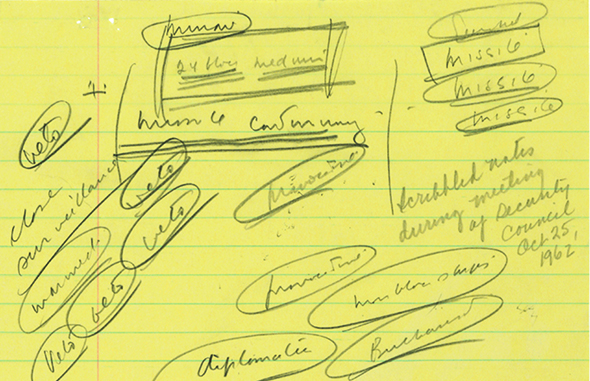The Surprising Benefits of Fidgeting and Doodling
- By Mary Kay Delaney
- Published

What do you do when your mind wanders and you are in class or a meeting? Do you doodle? Or perhaps fidget?
You are not alone. Humans have been doodling, and fidgeting, for a very long time.
Recent research suggests that doodling (spontaneous drawing) and fidgeting (spontaneous body movement) might actually help us to maintain focus and/or reduce stress that interferes with focus.
Teachers frequently observe doodlers and fidgeters. I once had a student who rolled his pencil up and down the desk. His pencil rolling did not seem to interfere with his attention or that of other students, but it definitely distracted me, so we talked. He rolled the pencil, he thought, because he was bored, during times when we reviewed material. We looked into this further – making note of when he rolled the pencil and what we were doing in class. We made a surprising discovery – he rolled his pencil whenever class focused on new topics or new ways of doing things!
So, why roll your pencil when topics are new? Recent research gives us some clues.
Consider that learning new material takes vigilance and maintaining vigilance is stressful. Research suggests that fidgeting might be a way of relieving stress – just enough to help us keep going with the task. Some studies even suggest that fidgeting leads to better recall.
Doodling might work in the same way, by helping us stay focused on a sustained task. A 2009 study found that doodlers recalled more information from a tedious phone message than non-doodlers did. The researcher speculated that doodling took just enough attention to keep the listeners’ minds from wandering, but not so much as to be distracting. The doodling gave a kind of “mental break” from the task of listening. In this way doodling might improve working memory. More recent studies have found that college and junior high school students who doodle recall more information than non-doodlers when listening to lectures.
The work on fidgeting and doodling has led to classroom practices that help students remember and attend to work. Exercise balls, for example, serve as chairs so that students can fidget away and not disturb others. Playing with small fidget toys while doing a sustained task, like writing a story, helps some students stay on task. Fidget toys also help adults at work who spend hours at computers.
How we move our bodies affects how we think about the world. And, how we are thinking and feeling about the world affects how our bodies move. Learning is not just in our heads – fidgeting and doodling are telling you something valuable about your own thinking and feeling.
Mary Kay Delaney, Ph.D., is a professor of education at Meredith College, where she teaches undergraduate and graduate students. Her areas of special interest include learning in sociocultural contexts, teacher education, equity and education, special education, and qualitative research methods.
Doodles by President John F. Kennedy written/drawn during the Cuban Missile Crisis.
News Director
316 Johnson Hall
(919) 760-8087
Fax: (919) 760-8330
PRINCETON REVIEW
U.S. NEWS
NICHE
3800 Hillsborough Street Raleigh, NC 27607-5298 | (919) 760-8600 Fax: (919) 760-8330 | © 2024 All Rights Reserved.